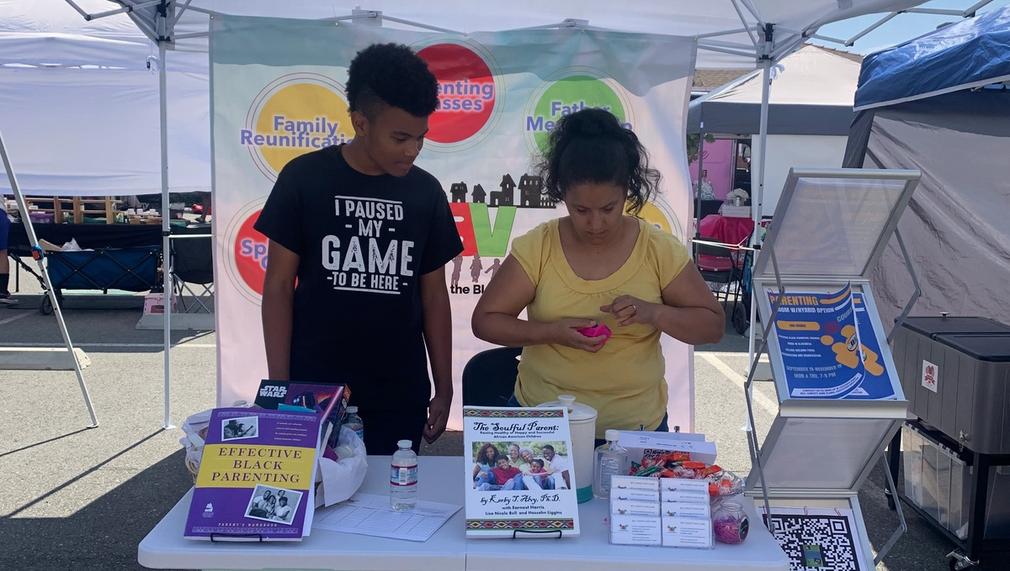Encouraging community engagement in family preservation.
SBV will expand offered education such as in-person and online training, support groups, for the adults around children: parents, teachers, pastors, extended family, etc. Unique class groups offer hospitality, transportation, child-care, lecture, group work and text books. Our group's goal is to reach families before Black children are removed from the home, as well as support families already in the foster care system. We infuse what we do with faith and commit to actions of anti-racism, pride in multi-cultural histories, and inclusion.

What is the primary issue area that your application will impact?
Support for Foster and Systems-Impacted Youth
In which areas of Los Angeles will you be directly working?
South LA
County of Los Angeles
City of Los Angeles
Other:: Virtual LA
In what stage of innovation is this project, program, or initiative?
Expand existing project, program, or initiative
What is your understanding of the issue that you are seeking to address?
I am one of 8 siblings in the LA foster care system Entered age 4, emancipated age 17. Black children and families are disproportionally represented in the foster care system in LA which in turn has the largest number of foster children nationally. Black families are 10% of the population, but represent 25% of the foster care system. 50% of foster care system CA children are in LA. I was able to graduation HS and pursue a BS and post-graduate education. 58%of kids in the foster care system graduate HS, only 8% graduate college versus 46% of kids not in the foster care system. 50% of foster care system kids become homeless or incarcerated.
Describe the project, program, or initiative this grant will support to address the issue.
SBV offers unique parenting classes, accessible virtually and in person, which are marketed as a tool for families prior to DCFS involvement or removal of a child from a home. We also accept and train parents, as part of the court process, after a child is placed outside the home. We encourage extended families members and community adults to take the course to increase knowledge in the village for at-risk children. Hospitality, child-care and transportation are offered to students in order to assist adults in overcoming logistical barriers to their education. Each class starts with prayer (inclusive of the faiths of the students) and moves to a check-in period. Students are highly encouraged to participate and are called upon. If a student has trouble coping with this style, private office hours are offered once a week where the student may either complete the work with a facilitator or discuss any issues which may be interfering with class participation. Additionally, the course includes lessons on how to combat negative racial messages in media and school groups and to bolster positive examples at home. At the end, each class is organized into its own support group privately and on social media. Students are encouraged to support one another and are encouraged to either talk to a facilitator or come back for a specific class if they need support after their course is already done. The village supports each other long after the initial class is over.
Describe how Los Angeles County will be different if your work is successful.
SBV's goal is to keep families together. Success means fewer children in out-of-home-care, particularly for black families. We are training additional instructors with an eye toward opening several chapters in LA to accommodate the need for adults to take education on raising a child. Our vision leads us to offer courses which teach an understanding of child development, age-appropriate effective praise, chit-chat and behavior modification. Instructors are trained in recognizing the happiness in parenting and supporting our families in finding and sustaining joy through the challenges and difficulties of each family's situation. Our plans envision LA as a place where there are healthy, intact, and nourished families. SBV cultivates a vibrant network with other nonprofits, for-profit, government agencies and community entities to meet the emotional, spiritual, physical, social, and all needs of our children and families.
What evidence do you have that this project, program, or initiative is or will be successful, and how will you define and measure success?
We will measure success by analyzing the outcomes of our students and their families. We are currently collecting data via post-course exams, post-course surveys, informal interviews, and by analyzing participant reviews on social media platforms, such as Facebook. In tracking the families after they graduate, we will determine if the behavior charts, positive incentive charts, and soul/self-care tools have resulted in healthier habits, behaviors and attitudes of the family unit. For Community members who take the course, or go on to become instructors, we determine how many families they impact and if the trained person becomes a valuable source of support and what tools they are using, such as social media. As we train more instructors, we will develop a more efficient approach to evaluate with SBV values that trainer's methods. In the future, we hope to be a big part of the reason for LA having the lowest number of foster children instead of the highest in the country.
Approximately how many people will be impacted by this project, program, or initiative?
Direct Impact: 460
Indirect Impact: 800